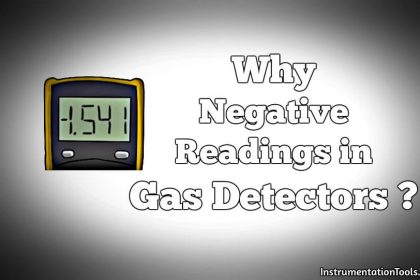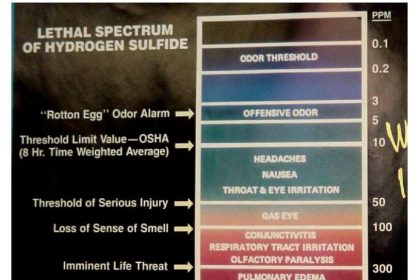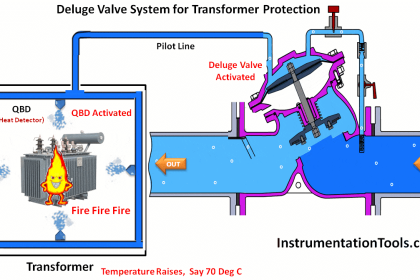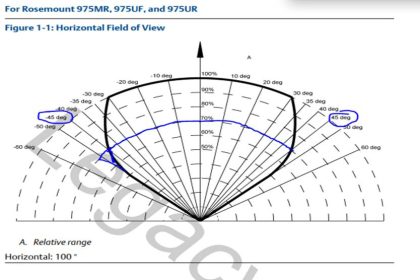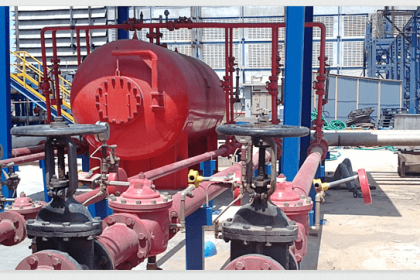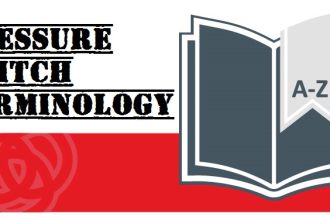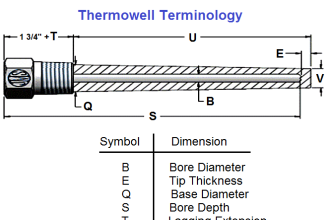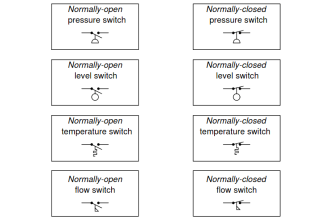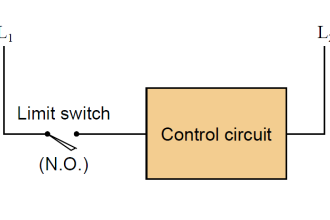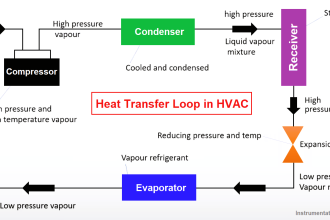A heat detector is a fire alarm device designed to respond when the convected thermal energy of a fire increases the temperature of a heat sensitive element. The thermal mass and conductivity of the element regulate the rate flow of heat into the element. All heat detectors have this thermal lag.
Heat detectors have two main classifications of operation, “rate-of-rise” and “fixed temperature”. The heat detector is used to help in the reduction of damaged property. It is triggered when temperature increases.
Fixed Temperature Heat Detector
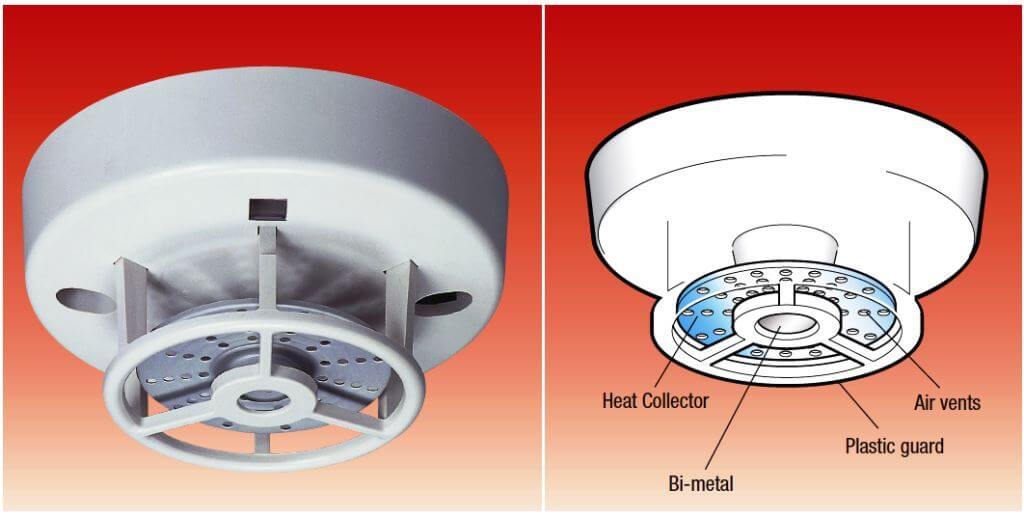
Fixed Temperature Heat Detector works when the heat exceeds a pre-determined temperature, the bi-metal deflects and closes the contact, triggering the fire signal.
Fixed Temperature Heat / Thermal Detectors can respond to:
- Fixed temperature limit
- Rapid rate of change of the temperature in the protected area
- Combination of these types of detection
Typical fixed temperature spot-type detectors contain a bimetallic switch element that closes at a specified temperature limit. The switch is normally composed of two metals, each having a different temperature coefficient of expansion.
As this bimetallic element heats the metal with higher coefficient of expansion, it causes the switch to bend or curve, closing the switch; thus indicating an alarm condition.
Line type thermal detectors are cables that detect heat along their entire length. A line type thermal detector may consist of two wires that are separated by an insulator.
After the heat builds to a certain level the insulation melts, allowing the wires to touch and current to flow, initiating an alarm.
Bimetallic spot and coaxial style thermal detectors are self restoring. Fusible link and melting insulation types of line thermal detectors are not self-restoring.
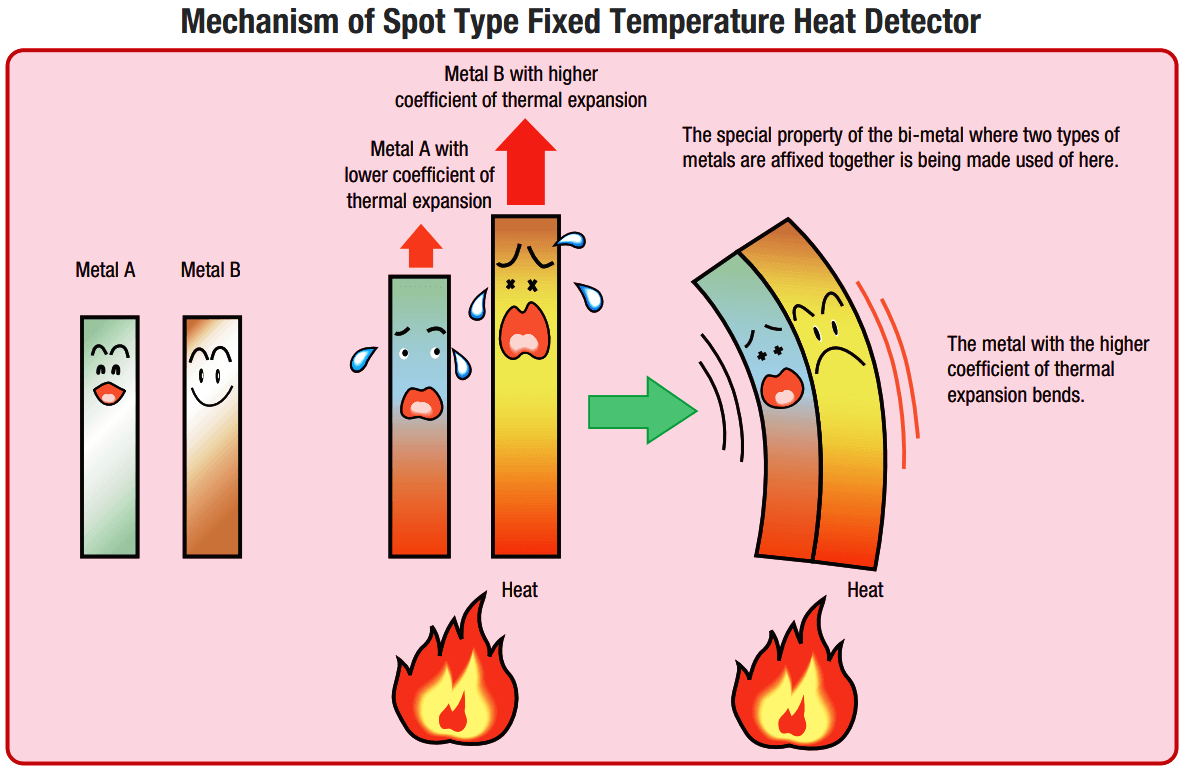
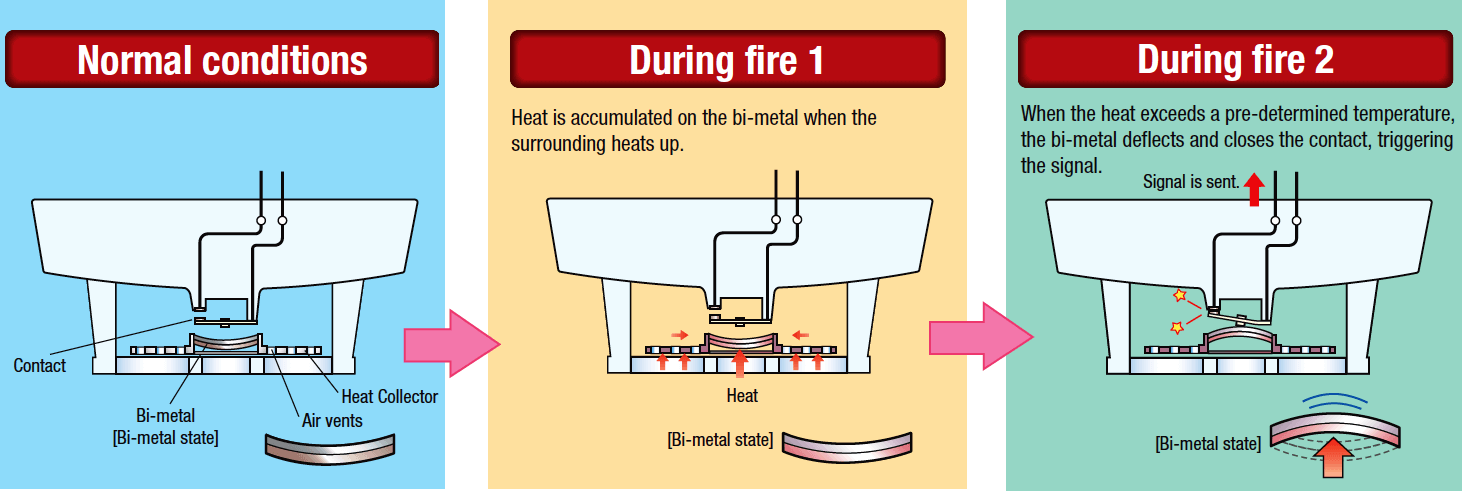
Image Courtesy : Hochiki
Advantages of Fixed Heat detection
- Lower cost than smoke detector units
- More reliable than smoke detector units
- Not affected by dusty or dirty environments
- Minimal maintenance
Disadvantages of Fixed Heat detection
- Slower to respond than smoke detectors
- Will not detect products of combustion
- Only suitable for protection of property
